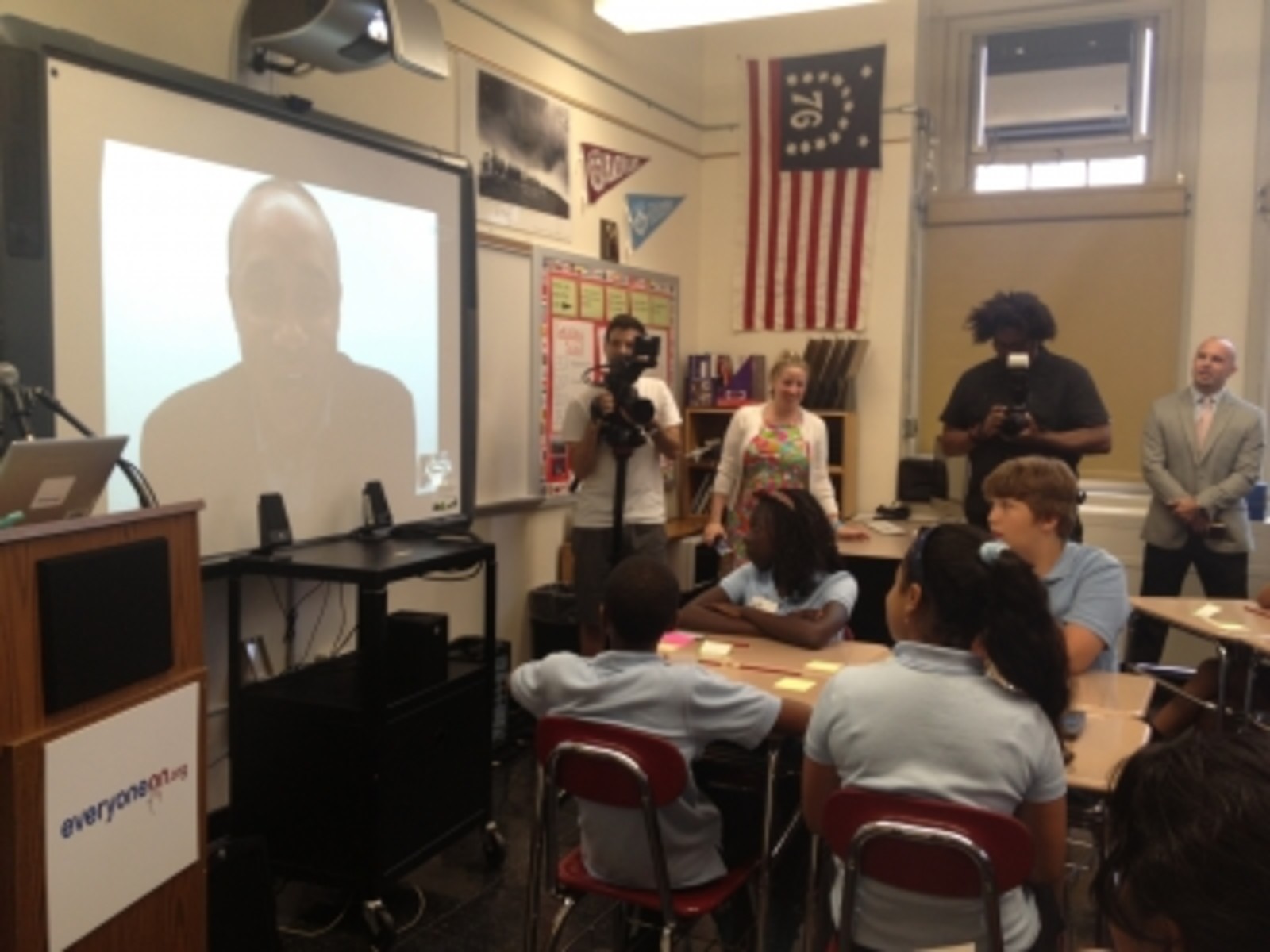Cheap WiFi for low income kids

A new program rolling out in New York City aims to bridge the "digital divide" and get low income students connected to the internet at home. About one in four, or 2.2 million New Yorkers, are without internet access at home and most of those New Yorkers are low-income and minority, according to EveryoneON, the organization running the Connect2Compete program that gives access to discounted internet service and low price computers.
Mayor Bloomberg held a press conference in front of a class of 7th-graders on the Upper West Side's MS 258 on Wednesday to promote the Connect2Compete program, which is already underway in other major cities like Chicago. He was joined by Carlos Slim Domit, son of Mexican billionaire Carlos Slim Helú, former NBA Knicks star John Starks, Education Department Chancellor Dennis Walcott and the principal of MS 258, John Curry.
"What we are doing today is getting together to try to provide the same opportunities to you and to other students," Domit said. He explained that more than 60 million Americans are not connected to the internet (as opposed to 35 million who are not connected in his home country, Mexico) and many of those 60 million are people of color. Domit's family foundation is a partner of Connect2Compete and working to decrease those numbers in Mexico and the US.
"Over 70% of teachers in this country give internet-based homework," Starks said, explaining why its so important that kids be able to use the web, before he fielded a few questions about that time he dunked on Michael Jordan.
Connect2Compete CEO Zachary Leverenz said that 30% of New Yorkers don't have "internet connectivity" at home. His program's goal is to "solve the number one barrier: cost and access."
Connect2Compete is offering one gigabyte of free monthly service to households in the 14,000 lowest income zipcodes in the country or people connected with Connect2Compete's partner organizations. Visit their website to find out what you type of service you can access.
Brian Vahaly, COO of EveryoneOn, said that people who sign up for the service should not need a router, as it uses Freedom Pop, which is "literally a plug and play," service. One caveat - you must have a credit or prepaid debit card to get the service, Vahaly said. That is a possible barrier for some low income New Yorkers.
One gigabyte is free to people in qualifying zip codes, and 10 gigs are available for $9.99. People who max out their data usage can opt to have their service shut off before they max out their data usage or buy more gigs.
The 7th graders said they mostly use the internet for music and videos, data-heavy activites. One gigabyte might not be enough to support 7th grader Eryk's 50 video per day habit or Anthony's 10 hours a day of online gaming. Still the 10 gigabyte price is still very cheap for that serivce.
Please Post Comments